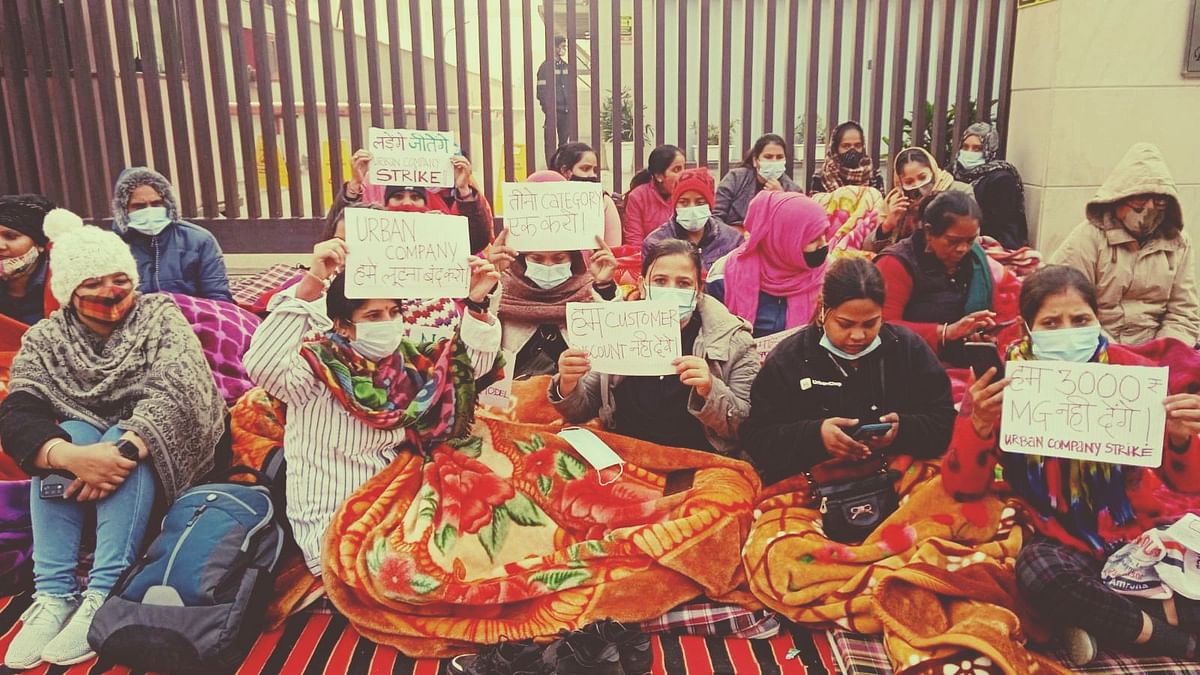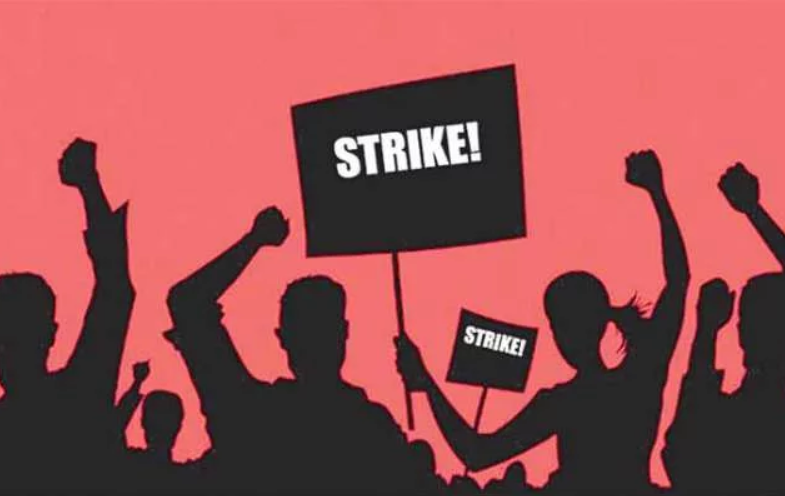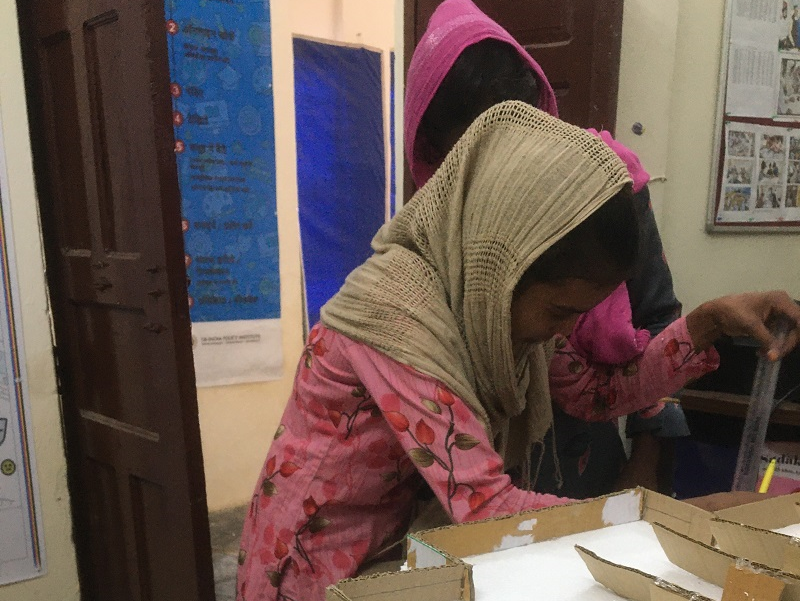
This week on TypeRight, we continue with the coverage of hatred that has been spreading across the country, and also look into the plight of the gig workers in the backdrop of a nationwide general strike.
While our previous chapters dealt with rising hate in the country, in this chapter, we examine the state of India's gig economy- and begin with a seemingly unrelated topic, rising heat:
Of course, it is the summer months, but there are definitely reasons the entire globe should be worried about, as many (wrongly) predicted a 'Don't Look Up' win at the Oscars, but got something else in return.
This Twitter user from New Delhi had tweeted a couple days back about how she was 'unfairly' charged extra money for asking the AC to be turned on during a summer day ride.
The photo got retweeted several times and even made it to news, as several portals covered it. But this is not particular to 2022, as these reports from 2020 and 2021 also look at similar incidents from cities like Kolkata. Of course, several other twitter users also pitched in with their experiences, and while Uber's team was busy apologising and making amends, this is a point to ask oneself whether the customers need always be right?

The Indian Federation of App-based Transport Workers (IFAT), a worker’s organisation representing app-based transport and delivery workers, and the Telangana Gig and Platform Workers Union (TGPWU) had issued a clarification regarding the same. Their reasons are simple, fuel prices have been reaching to never-before highs, while aggregator companies like Uber and Ola have been slashing rates for the drivers. Two years of the pandemic and the lockdowns that were imposed during it had severely impacted the earnings and livelihoods of most cab drivers, many of whom are in debt.
The gig economy in India has been growing quite rapidly in the past half a decade, with several IPOs, investments, and projections in billions- but it has not been boding so well for the workers on the ground that have been keeping the companies running. Quoting from this report in Business Standard, "Gig economy includes all platforms that hire independent workers across sectors like e-commerce, technology, food & beverages, home services among others. As per an ASSOCHAM report, there are 15 million freelance or gig workers across India." These numbers have since increased after the pandemic, when there was a huge loss of jobs and livelihoods.
These numbers are probably why it is deemed as 'the new face of employment' in the country, a large portion of the workers are reasonably educated, and in all technical senses underemployed in the current economy. To make things worse, most companies use legal and technical loopholes to avoid responsibilities and evade worker rights legislations. As the following article mentions, they work in grey areas-
It is grey because employee-employer relationships are grey and “employment” mostly is through a third party, a vendor. The workforce is not exactly a ‘workforce’ in the strict sense of the term. They are also given fancy tags such as “partners”, but they do not have an equal partnership in the profits of the company.
Earlier this year, as part of a research project collaborating with the Alan Turing Instituite and the Global Partnership on AI, DEF had a conversation with the national secretary of the TGPWU. Here, quoting a small portion from our report, where the TGPWU secretary mentions how the system is unfair to the drivers:
[...] the drivers have to bear the brunt of mismatching GPS guidance. He asks: “suppose the GPS is showing a 10 km distance and then the roadblock. so, in this case, we have to drive around another route, and that is how I drove for 18 km right? Now, who will pay for that extra 8 km? The company completely refuses this fact and counter-quests us as to why we took the long route. They sit in the office and have no idea of ground reality and they don't pay for that extra 8 km”. His testimony attests to the fact that the grievance redressal systems are embedded in exploitative power relations and hardly sides with the drivers. On the contrary, the grievance redressal systems of the customers are efficient and responsive as specified by this union leader. Similarly, it was also pointed out that the company algorithm often misinforms the drivers about the surge in demand in certain locations. The drivers, expecting a surge fare would drive to the locations only to find out that the algorithm was misleading them. They end up paying from their pocket for the extra kilometres they ride.
Our report had focused more on how the companies' tech impacts the workers. This article on the Quint also details how the companies evade law, and how the monitoring works-
If he refuses to accept a ride for any reason (too short, too risky, lower-paid work, congested route, too far from home after a long day, etc), he may be penalised. The algorithm’s constant watch is similar to and sometimes more pervasive and invasive than a factory supervisor’s or boss’s monitoring.
The gig economy and the evasion of labour rights are not restricted to the noted unicorns such as Ola, Uber, Swiggy or Zomato. As this article from Fortune mentions,
Multinational corporations (MNCs) have taken to “flexi-hiring” (gig workers) to reduce operational expenses, both before and after the pandemic, contributing significantly to the gig economy in India. [...] The EdTech sector is already riding on the gig revolution and employs more than 90,000 people. Companies are increasingly looking for gig workers in HR operations, customer support, marketing and sales, software development, IT support etc.,[...]
A study quoted by the IBEF mentions how 90% of India's gig workers suffered losses during the pandemic, "by August 2020, nine in 10 were earning Rs.15,000 a month, more than 33.3 per cent were making Rs.150 a day or even less. According to the same survey, India stood to lose 135 million jobs because of the pandemic, pushing the jobless towards the gig economy."
However, there are few options for protest in the new face of labour and employment, and this works to the profit of the companies. Quoting from the same frontline article above:
"[...]who do gig workers collectively bargain with? We make it a point to raise our issues with the Labour Commissioners. When Labour Commissioners call the area managers to talk to them, the company representatives point blank say they don’t talk to third parties. That’s the impunity with which they operate. That is because of heavy de-regulation and inaction by the government. Recently, NITI Aayog celebrated the fact that there were around 5 million Uber riders in the last four years. It is a nice figure but they don’t have any idea of how many of them have committed suicide, how many of them have lost their work.”
As Shaik Salauddin of the IFAT notes, companies have been constantly trying to bust unionising efforts-
Now, with all these facts and testimonies from the employees, and knowing how protest/ redressal mechanisms (do not) work in the gig economy, maybe the new array of announcements by these unicorns promising 'instant deliveries' can be seen differently.
Digital or otherwise, the economy and the workers are in distress- the laws that gig-employers try to avoid are themselves getting weakened in an amendment of the labour laws. The last week of March also sees a call for a labour strike, one in which 20 crore workers are expected to participate.
In other stories of rising hate,
(This week, continuing from our previous coverage of hatred, digital and offline, we are sharing some stories and judicial news that requires little comment to explain)

DEF Updates
One of our team members documented her experience of her visit to some of DEF's centres in Nuh, Haryana:
In Ghazipur, the Smartpur team organised a health camp for the elderly:
Our centre coordinators were spreading awareness on COVID earlier, now they continue their work on the importance of nutrition:
DEF's partner, The Barefoot College, Tilonia held their golden jubilee celebrations this week-
... and this skit that was staged there highlighted the importance of digital literacy and inclusion in these times:
Until next week, we hope our readers stay safe from the predicted waves of heat, as well as counter the waves of hate.






























 might be?](https://sk0.blr1.cdn.digitaloceanspaces.com/sites/1394/posts/714526/dbc8de4c-5c50-411f-aba0-55cfb74a692d.jpeg)

Write a comment ...